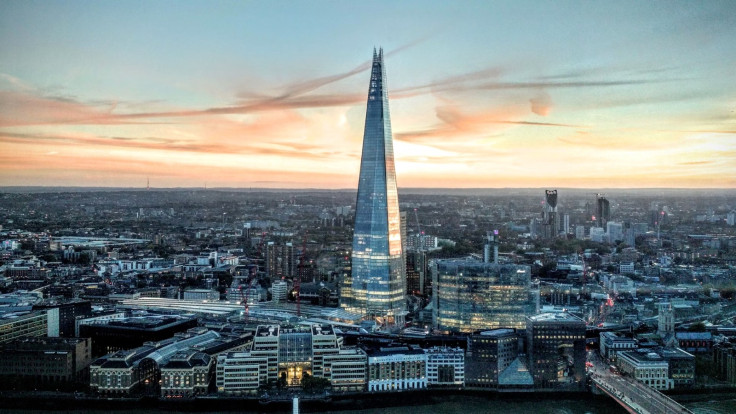Hotels, Heritage, and Hamas: Why the West Is Shedding Its Reliance on Qatari Cash
Scrutiny over Qatar's UK property holdings, linked to terrorism concerns, prompts boycotts and political pushback, leading to a reassessment of Western ties and investments.

Just over ten years ago, Prince Andrew, Boris Johnson, and the billionaire Prime Minister of Qatar Sheikh Hamad bin Jassim bin Jaber Al Thani, known as HBJ, celebrated the opening of Britain's tallest building, the Shard. The new edition to London's skyline was built with nearly £2bn of Qatari investment.
The state's strategy of deploying its vast oil wealth to buy up significant portions of the nation that once ruled over it was well underway. Since then, the Qataris' British property empire has ballooned – according to The Observer, the portfolio is likely worth over £10 billion.
The state of Qatar alone is the 10th largest landowner in the UK, owning 2.1 million square metres of property. Many of the properties are owned through Jersey, the British Virgin Islands, or the Cayman Islands, meaning that ownership is murky due to a lack of public disclosures and that the real total is likely much higher.
The UK's partnership with the tiny, petrodollar-rich state has only deepened in recent years. In 2022, the UK and Qatar agreed a Strategic Investment Partnership (SIP) in which Qatar promised to invest up to £10 billion over five years in key sectors of the UK's economy.
But following the Qatargate scandal, the corruption involved in procuring the FIFA World Cup in Doha, and most recently the outbreak of the crisis in Gaza, attention has been drawn to Qatar's unique and unsettling role as a mediator-cum-terrorism financier, and the mood in the UK, as well as that of its Western partners, is starting to sour.
Consumers, led by the Counter Extremism Project (CEP), are boycotting HBJ's portfolio of elite London hotels including the Connaught and Claridge's. Other five-star hotels backed by Qatari investors including The Ritz London and The Savoy are also named by the campaign due to the state's links to funding terror organisation Hamas.
The CEP claims that 'Qatar's role in the atrocities perpetrated by Hamas in Israel is indisputable.' It stated that Ismail Haniyeh, the group's leader, 'planned and celebrated the Israeli massacre from his office in Doha, is provided with five-star accommodation in Qatar.'
Notably, HBJ was prime minister of the emirate when the terror group set up its headquarters there and has been seen publicly multiple times with its leader.
Haniyeh continues to direct Hamas' terror operations from his Doha headquarters.
In the sporting world, fans boycotted the FIFA World Cup and most recently, the Qatar Open, due to outrage over the human and labour rights violations that make these flashy international tournaments possible.
The increasing aversion to accepting Qatari money extends beyond just consumers, with businesses beginning to step back too. Total UK imports from Qatar dropped 55% between year-end 2022 and 2023, in a year when imports generally remained steady from other markets.
Most recently, Manchester United fans famously persuaded the Glazer family to reject HBJ's son, Jassim bin Hamad bin Khalifa Al Thani's, recent bid to acquire Manchester United due to his inability to provide adequate sources for the funding.
As with most of Qatar's investment proposals, Sheikh Jassim's bid was an attractive one. He promised to bring a record of successful management, and the lucrative offer would have entirely cleared the club's existing debt. He pledged to invest around £1bn on either redeveloping Old Trafford or building a new stadium, along with transforming the club's training facility.
This was not enough to convince the Glazer family to accept cash from the same people who fund Hamas.
While sources close to Sheikh Jassim maintained that the proposed was being funded in a personal capacity, fans were concerned that he was merely a frontman for a bid funded by the Qatari state – whose sovereign wealth fund controls an estimated $370 billion worth of assets – in yet another attempt to 'sportswash' their reputation, marred by human rights violations and terrorism financing.
It was recently revealed that he never even met with the Glazer family over the course of his multiple bids for the club – with a level of personal involvement so miniscule that his rival opponent, Sir Jim Radcliffe, questioned whether the Sheikh even exists.
Recent events may indicate that this hostile atmosphere is spreading to elected officials and politicians. The Australian government recently rejected Qatar Airways' request to increase the number of flights running to Australia's major airports. Despite Qatar's outrage that no other carrier from the GCC region has been subjected to 'such strict requirements,' the Australian government remains opposed to the request, justifying their position with the fact – among others – that 'the Qatari government owns the airline.'
Last month, French mayors from the Paris suburbs opposed a stadium building offer made by the state, all due to the state's links to 'the worst terrorist groups.'
These moves to block Qatar's strategic investment attempts in assets that could improve its reputation and buy up goodwill with the international community are telling. As defenders of democracy and protectors of equality, the West is finally beginning to abide by its own principles.
The deep pockets of the Qatari state are filled with cash that feeds a corrupt system and finances terrorism to advance its own radical agenda. With Hamas remaining committed to violently resisting Israel, and the crisis in Gaza deepening, we may be witnessing the start of a broader resistance to Qatar's financial involvement in the Western world.
© Copyright IBTimes 2025. All rights reserved.




















